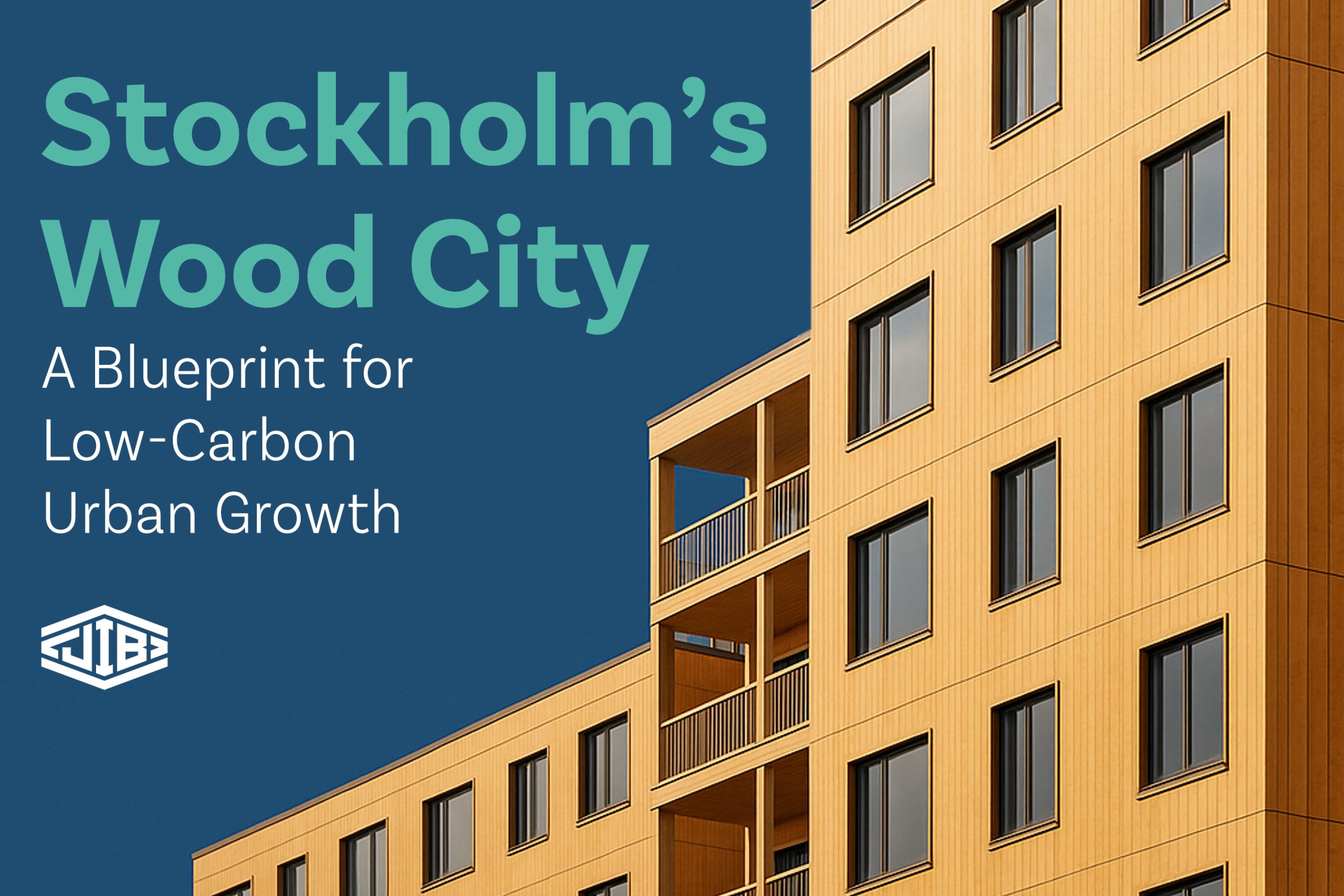As cities around the world grapple with the dual challenges of climate change and housing demand, one Scandinavian project is offering a bold, beautiful solution. And wood is the key component.
A City Built from Timber
Stockholm Wood City, led by Swedish developer Atrium Ljungberg, is set to become the world’s largest urban development constructed entirely from engineered wood. Located in the Sickla district, this ambitious project will deliver 2,000 homes, offices, and retail spaces by 2027. All of it constructed using mass timber.
It’s more than just an architectural achievement. It’s a clear demonstration of how cities can scale sustainably, using renewable materials to reduce environmental impact without sacrificing design or livability.
The Carbon Advantage
The numbers speak for themselves. By replacing concrete and steel with engineered wood, emissions for the development could be reduced by up to 40%. This supports a growing body of research showing that mass timber, when sourced responsibly, acts as a long-term carbon store and not just a low-impact alternative.
As Canada and other countries commit to net-zero building codes and embodied carbon disclosure, projects like Stockholm’s Wood City serve as a roadmap. They show what’s possible when bold policy, market momentum, and smart design come together.
More Than Sustainability
Beyond carbon metrics, there’s something deeply human about living in a timber-built space. Studies suggest that natural materials improve well-being, reduce stress, and enhance indoor air quality. From the warm acoustics to the visual texture of wood grain, mass timber adds character and comfort to urban life.
What Can Canada Learn?
Canada has the forests, the technical capability, and increasingly supportive policy frameworks. The question is whether we’re ready to take on projects of this scale.
To lead on the world stage, we’ll need to move beyond demonstration projects. That means building industry confidence in wood as a primary material, modernizing codes and permitting processes, and creating stronger partnerships between government and industry.
Want to Learn More?
Explore the official Stockholm Wood City project here:
Atrium Ljungberg – Stockholm Wood City
Wondering how storytelling and smart marketing can advance offsite construction, mass timber, and sustainability in North America?
Whether you’re in AEC, sustainability, or shaping the built environment, we’d love to connect. Let’s talk – or explore BuildBetter.Marketing.
Structure needs story. Jib delivers.









